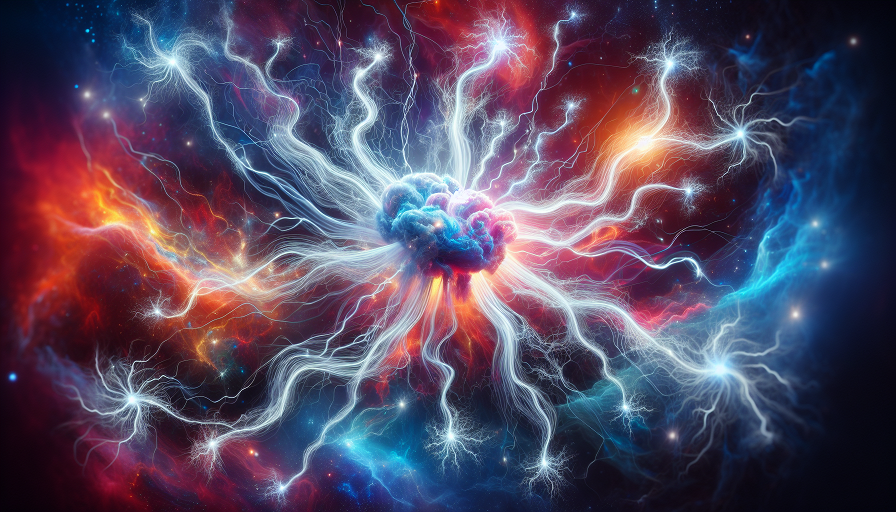
Burnout used to be a buzzword. Now it’s a badge of survival. We joke about it. We normalize it. We push through it—until one day, our brain waves the white flag.
Burnout isn’t just mental fatigue or a bad week. It’s a full-body cognitive shutdown, driven by relentless stress and overstimulation. And in a culture that celebrates 5 a.m. wake-ups, back-to-back meetings, and inbox zero, it’s becoming dangerously common.
But what exactly happens inside your brain when hustle goes too far? Let’s step past the productivity platitudes and look at burnout through the lens of neurology, cognition, and hormonal balance. Because understanding the mechanics is the first step toward rebuilding clarity, focus, and mental energy.
Contents
- What Is Burnout—Really?
- The Stress Response: Helpful Until It Isn’t
- What Chronic Stress Does to Your Brain
- The Myth of the “Mentally Tough” Hustler
- Warning Signs You’re Sliding Toward Burnout
- Recovery Isn’t Optional—It’s Neurological
- Can Nootropics Help During Burnout?
- Redesigning Work for a Brain That Lasts
What Is Burnout—Really?
Burnout was officially recognized by the World Health Organization in 2019 as an “occupational phenomenon” characterized by:
- Emotional exhaustion
- Mental distance or cynicism about work
- Reduced professional efficacy
But neuroscience shows it’s more than just emotional. Burnout is a physiological state where chronic stress rewires the brain’s systems for focus, memory, and motivation.
The Stress Response: Helpful Until It Isn’t
When you face a challenge—say, a looming deadline—your brain activates the HPA axis (hypothalamus-pituitary-adrenal system). This floods your body with cortisol and adrenaline, sharpening focus and fueling short bursts of productivity.
In moderation, this is helpful. It’s what helped your ancestors outrun tigers. It’s what helps you finish a presentation under pressure.
But when this system stays switched on for days, weeks, or months? That’s when burnout begins to brew.
What Chronic Stress Does to Your Brain
When the stress switch gets stuck, the brain begins to change structurally and functionally. Key regions affected include:
1. The Prefrontal Cortex (Your CEO)
- Responsible for planning, decision-making, focus, and impulse control
- Under chronic stress, this region shrinks in volume and connectivity
- Result: Poor concentration, decision fatigue, and emotional reactivity
2. The Hippocampus (Your Memory Hub)
- Essential for learning and memory formation
- High cortisol levels cause neuronal atrophy here
- Result: Forgetfulness, trouble recalling names, impaired working memory
3. The Amygdala (Your Alarm System)
- Processes fear and threat signals
- Becomes overactive in burnout, even with mild stressors
- Result: Heightened anxiety, irritability, and emotional volatility
In essence, burnout hijacks your brain—turning your best mental tools into liabilities.
The Myth of the “Mentally Tough” Hustler
Many people assume that burnout only affects the weak, unmotivated, or disorganized. In truth, it disproportionately affects:
- High achievers
- Perfectionists
- People who equate self-worth with productivity
- Those in caregiving or high-responsibility roles
Burnout isn’t failure. It’s often the outcome of unsustainable cognitive output without adequate recovery.
Warning Signs You’re Sliding Toward Burnout
Burnout rarely arrives overnight. It creeps in. Here’s what to watch for:
- Brain fog that doesn’t go away with sleep
- Loss of motivation for things you used to enjoy
- Increased errors and forgetfulness
- Difficulty making even simple decisions
- Resentment toward work, clients, or colleagues
- Insomnia or sleep that doesn’t feel restorative
If these sound familiar, your brain may be quietly waving a distress signal.
Recovery Isn’t Optional—It’s Neurological
Unlike temporary fatigue, burnout requires more than a weekend off. Your brain needs repatterning. This includes:
1. Sleep Restoration
Sleep isn’t just rest. It’s how the brain detoxes, repairs neural pathways, and recalibrates emotion. Aim for 7–9 hours of consistent, high-quality sleep, not just more time in bed.
2. Cognitive Rest
Downtime means real rest—not scrolling, background noise, or passive stimulation. Let your mind be quiet. This allows the default mode network to reset and integrate.
3. Emotional Decompression
Suppressing stress increases it. Use tools like journaling, breathwork, or therapy to discharge emotional overload.
4. Focused Nutrition
Burnout depletes nutrients like magnesium, B-vitamins, and omega-3s. Restore them through diet or supplementation to support neurotransmitter balance and mood.
Can Nootropics Help During Burnout?
While no supplement can replace rest and recovery, nootropics can support the brain’s resilience as you rebuild. Certain ingredients are particularly useful during burnout:
- Rhodiola rosea: An adaptogen known to reduce mental fatigue and regulate stress hormones
- L-theanine: Helps calm the nervous system without sedation, improving clarity
- Citicoline: Supports memory and neural regeneration
- Bacopa monnieri: Enhances cognitive function and promotes emotional balance
Used alongside good habits, these compounds offer gentle cognitive support during the long arc of burnout recovery.
Redesigning Work for a Brain That Lasts
If you’ve hit the burnout wall—or are trying to avoid it—it may be time to rethink how you structure work:
- Shift from hustle to cadence: Work in 90-minute focus cycles with intentional breaks
- Define your non-negotiables: Protect sleep, movement, and creative time
- Build “white space” into your week: Time with no agenda invites clarity
- Measure output, not hours: Productivity isn’t about time at your desk
- Give yourself permission to reset: Your best ideas come when your brain isn’t in crisis mode
Burnout isn’t a weakness—it’s a signal. Your brain is asking for rest, recalibration, and care. And when you respond to that signal, you don’t just recover—you return sharper, steadier, and more creatively potent than before.
Hustle can create momentum. But it’s recovery that sustains brilliance. When you build a system that respects your neurology, your brain will thank you—not just with focus, but with ideas that last.

